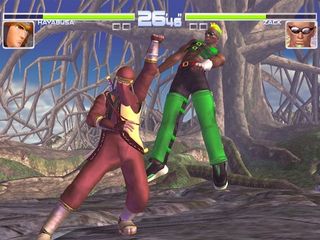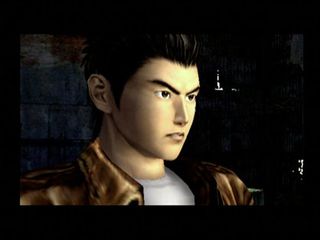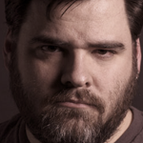Why the Dreamcast was different
We break down why Sega's doomed system is the industry's most beloved cult console
“The PS2 launched, and suddenly the party was completely over,” said Reyes. “Maybe I saw it earlier than most because of my job on Official Dreamcast Magazine, but I remember being completely gutted when rumors started circulating that Sega was going third-party and dropping the system.
“I didn’t give a shit about losing the job so much as losing what Dreamcast represented to me at the time. Even when it was flying off store shelves in its heyday, the DC was always the underdog. It was the system you could feel good fighting for. And when it eventually fully surrendered, things changed,” she said.

Above: Don’t blame the PS2; blame Sega for blaming the PS2
So, this kind of leaves us back at square one – with the system officially dead for more than eight years, what keeps fans talking about it in such reverent tones a decade after its release? So far, we’ve seen that it grabbed fans’ loyalty right off the bat with an explosive launch, amazing hardware and an unbeatable game library, but it’s hardly the first system to do that. There has to be something more. And it’s possible that the final piece of the puzzle is a cultural phenomenon known as Dead Rock Star Syndrome.

Above: All brilliant, and all snuffed out in their prime
While Dead Rock Star Syndrome frequently has negative connotations – not the least of which is that an artist’s death falsely gives their work a greater perceived meaning in the eyes of the public – we don’t mean it as a dig at the Dreamcast’s reputation. Far from it; if this article has taught you anything, it should be that we’re slavering fans viewing the past through rose-colored (or if you prefer, orange-swirl-colored) glasses. But think about it: We never had to see the Dreamcast decline. We never watched it grow fat and old, burdened with inane shovelware that no self-respecting gamer would ever play, much less buy. We never had time to lose interest as we moved on to the next console generation and gradually forgot about it.
Instead, it was simply taken from us at its peak, leaving us to moon over the games we’d never get to play and the promises left unfulfilled. And although the system still held some life for importers and the homebrew community, for the rest of us, it was the end.
Sign up to the GamesRadar+ Newsletter
Weekly digests, tales from the communities you love, and more

Above: Shenmue II was just one of the games the Dreamcast’s death deprived North American gamers of (until it came out on Xbox and everyone failed to care)
And so we were left with a great body of material and the knowledge that there wouldn’t be any more coming, and we did what any dead rock star’s fan would do in a similar situation: we mourned what would never come, we idealized what was already there and we lionized the Dreamcast as the one system that, in its short lifespan, never let us down – except for the one time when it really, really did.
Could it have gone differently? Would we remember the Dreamcast with as much fondness if, instead of giving up the fight, it had tried to go toe-to-toe with Sony, Microsoft and Nintendo? Maybe – or maybe we’d just remember it as a naïve pretender to the throne, forever hampered by weak visuals, a lack of a second analog stick and complete failure to get EA on board as a third-party developer. We’ll never know for sure, but maybe it’s best that the Dreamcast went out on a high note, rather than sticking around ‘til the bitter end.
“It’s a drastically different gaming world we’re in now,” said Reyes. “Our game swag has been relegated to licensed plastic drum kits and fancy guitars rather than brightly colored maracas and risqué trance-vibrators. The types of creative risks I embraced on Dreamcast are now mostly found only in indie-developed XBLA/PSN or Nintendo DS titles. I’ll wholeheartedly admit that I love this new world as much as the last one, but there is still something missing, and maybe it always will be.”
Sep 9, 2009


A posthumous salute to the greatest titles for Sega’s doomed console

Even after ten years, the Visual Memory Unit is one of our favorite storage devices

Our resident DC fanboys look at how Sega could pull it off
Most Popular



